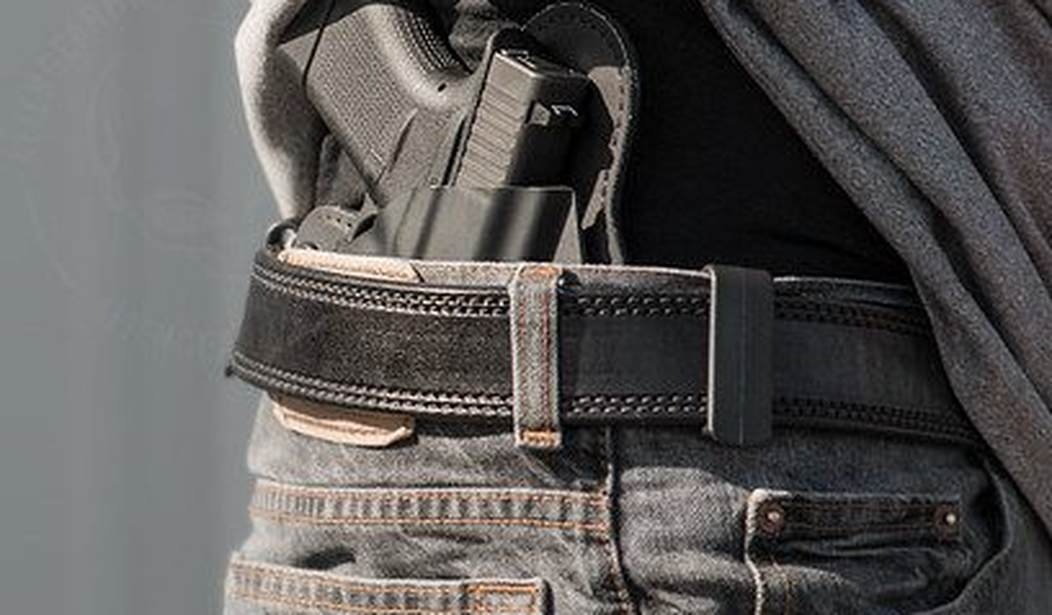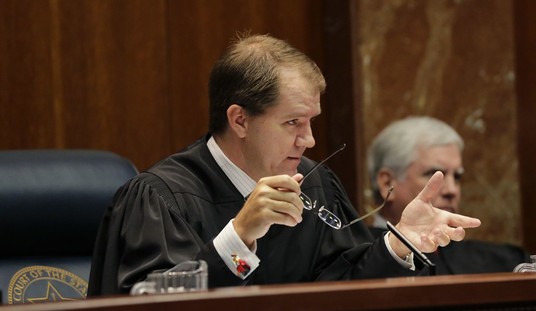In a state as hostile to our right to keep and bear arms as Illinois, any good news, no matter how small, is worth talking about. And the Land of Lincoln is taking a modest step in the right direction this week, with Gov. J.B. Pritzker signing a bill that will offer a way for some folks charged with the crime of possessing a firearms without a FOID card to legally possess and carry a firearm while avoiding prosecution.
***UPDATE***
Pritzker did not sign SB1899 into law today after all, so even this modest step may be too much for the anti-gun governor. Original story continues below
Simple possession of a firearm with a FOID can be charged as either a misdemeanor or a felony, depending on the circumstances. Carrying a loaded, uncased firearm without both a FOID and carry license is generally considered "aggravated unlawful use of a weapon"; a felony punishable by up to three years in prison for a first offense.
The laws, which was passed with bipartisan support at the end of the spring legislative session, allows people who have been arrested for the least severe charges of possessing a gun without a license to complete diversion programs that are alternatives to prosecution.
After the programs are completed, and the felony case is officially dropped, Illinois State Police would grant that individual a firearm owner's identification, or FOID, card if they choose to apply and pass the background check.
The Cook County State's Attorney's Office said the way current Illinois law is structured prevents state police from starting the process of the FOID card and background check until after the felony case is officially dropped, which can take months after the diversion program is complete.
The new law allows state police to start the application and background check in the interim between completing the programs and the official dropping of the charges.
This will be an improvement over the status quo, but honestly, that's not saying much. The real issue is that the state of Illinois makes it a felony in some circumstances to possess a firearm without a government-issued permission slip.
The state's attorney's office said the law benefits people who own guns for protection or for sport, and who may have moved to Illinois after purchasing a gun legally in another state, especially ones with looser gun regulation and open carry laws, who have not realized Illinois gun laws would require them to get a FOID card and concealed carry licenses.
Why are these folks being charged with a felony in the first place? As Cook County State's Attorney Eileen O'Neill Burke, notes, these gun owners aren't accused of committing a violent crime. In many cases they were completely unaware of the state's draconian gun laws altogether. Diversion and the opportunity to apply for a FOID card is better than nothing, but the fact remains that it shouldn't be a crime to possess a firearm without a FOID card to begin with, any more than it should be a felony to carry a firearm without an Illinois CCW.
The legality of the state's FOID card requirement itself is up for debate, with the state Supreme Court repeatedly ducking a direct decision on the law's constitutionality.
With Democrats in firm control of both the House and Senate in Springfield, legislative repeal of the FOID mandate and the adoption of a permitless carry law are just figments of our imagination. Small steps like the bills that were approved in a bipartisan basis, though, show that there are ways to chip away at the multiple infringements that gun owners face.
Meanwhile, Second Amendment advocates are using the federal courts to dismantle larger chunks of the state's unconstitutional gun laws. A U.S. District judge has already ruled the state's ban on so-called assault weapons and large capacity magazines violates the Constitution, and the Seventh Circuit will hear oral arguments in Illinois' appeal of that decision in mid-September. The Firearms Policy Coalition has also won a district court victory in a challenge to Chicago's designation of public transit as a "gun-free zone"; a case in which the appellate court heard oral arguments in late May.
Given the makeup of the state legislature, the courts are going to be the best vehicle to make substantive improvements to Illinois gun laws for the foreseeable future. It is possible to make more incremental progress, though, and even a modest step in the right direction is better than a step backwards.









